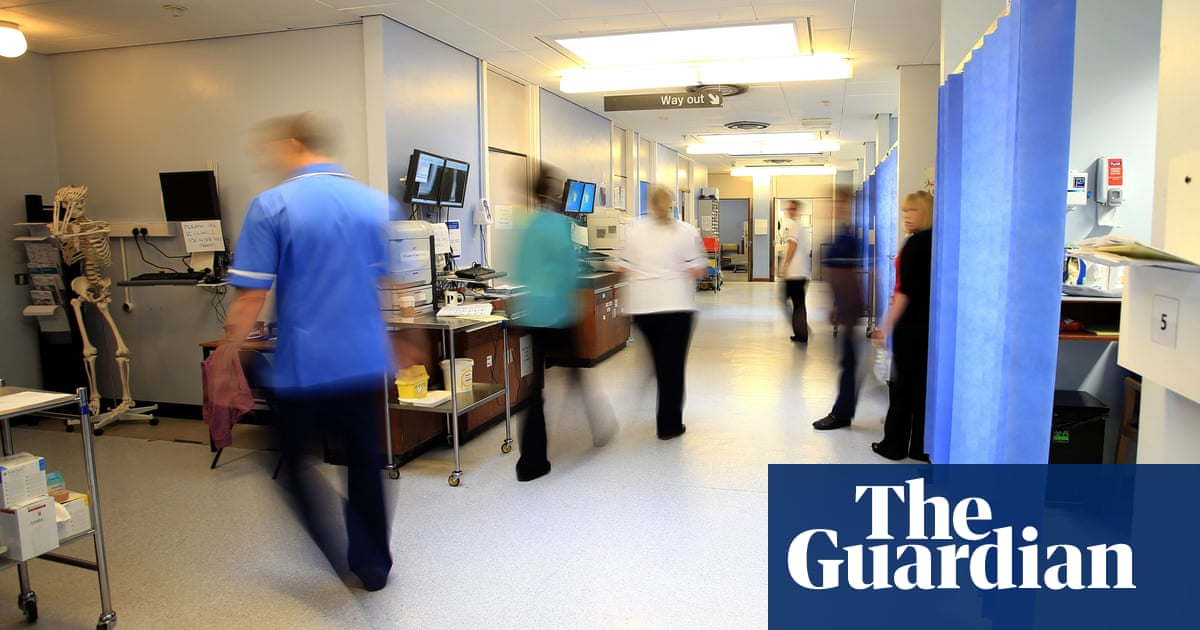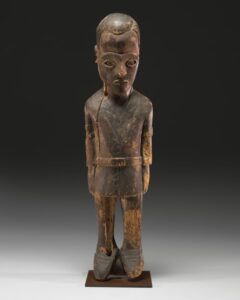
Numerous NHS staff working on the frontlines are caring for patients while also being investigated for their involvement in a suspected large-scale qualifications fraud.
Over 700 nurses are involved in a potential controversy, which a former leader of the Royal College of Nursing warned could jeopardize the well-being of NHS patients.
The purported scheme reportedly includes individuals posing as nurses and completing a crucial exam in Nigeria, which is necessary for them to obtain registration and employment in the UK.
Peter Carter, former chief executive of the Royal College of Nursing and former chair of three NHS trusts, expressed concern over the involvement of an organization in fraudulent activity. This includes facilitating nurses to bypass tests or having surrogates take exams for them, which could lead to incompetent nurses in the UK. Carter referred to this as “industrial-scale fraud” and finds it very alarming.
The Nursing and Midwifery Council (NMC) received commendation for their steps towards addressing those responsible in order to safeguard the standard of care, patient well-being, and the credibility of nurses.
Carter stated that nurses who come to work in the UK must possess appropriate qualifications, as they play a crucial role in administering medication, intravenous treatments, and responding to urgent situations like cardiac arrests.
48 of the nurses are currently employed by the NHS as registered nurses, as the NMC does not have the authority to remove them from their register. In order to work as a nurse or midwife in Britain, one must be registered with the NMC, unless directed otherwise by an independent panel during a hearing. The NMC has advised these nurses to retake the test to demonstrate their skills meet their standards, but they cannot be suspended in the meantime.
48 individuals are scheduled to attend separate hearings, beginning in March, where they will be required to clarify how they were able to successfully complete the computer-based numeracy and clinical knowledge test at the Yunnik test center in Ibadan. During these hearings, a panel may order the NMC to remove these individuals from the registry. The recorded times have caused concern as they were significantly faster than what the nursing regulator has previously observed.
However, the NMC is now implementing stricter measures against a second group of 669 Nigerian healthcare workers. This group mainly consists of nurses, with a small number of midwives, whose test results were also determined to be fraudulent. According to sources, many of these individuals have already arrived in the UK.
But, they hold a distinct position from the 48 individuals as they are believed to primarily serve as healthcare aides in the NHS and care facilities. This is due to the NMC not yet approving their requests to be included in its registry while it conducts an inquiry into the widespread impersonation at the Yunnik test center.
Approximately 80 out of 669 nurses who applied for a new CBT test have also applied to join the NMC register in order to begin working in their desired role. Unfortunately, the majority of these applicants have been prohibited by the nursing regulator due to significant concerns about their integrity and reliability.
The NMC stated that there are still concerns about the character of individuals involved in the Yunnik incident, despite implementing a new CBT. This is based on the data that was collected.
Andrea Sutcliffe, the NMC’s chief executive and registrar, said it had taken necessarily robust action after Pearson VUE, which had a contract with the Yunnik test centre, alerted it last year to what she called “widespread fraudulent activity” in which a “proxy tester” posed as a nurse.
She stated that this is the initial instance where we have discovered proof of extensive deceit at a testing facility. Additionally, she mentioned that it is the most significant fraud the NMC has ever encountered.
The fraudulent activity at Yunnik resulted in the NMC declaring that the CBT test results of 1,955 Nigerian-trained healthcare workers are not valid. Despite the regulator’s inability to prove fraud for 1,238 of these individuals, all of them have been given three opportunities to retake the CBT test or risk being expelled or barred from the register.
Sutcliffe stated that there are concerns about 48 people who are currently on the register and may have obtained their test result through fraudulent means. Hearings will be held to determine if these individuals gained entry to the register fraudulently, and if so, they will most likely be removed from the register by an independent panel.
“We have identified 669 applicants who have raised concerns about fraud. Each application is being thoroughly reviewed according to our guidelines for health and character. Out of the 80 applications that have been reviewed, the majority have been denied entry to the register. These individuals have the option to appeal.”
The status of 717 nurses’ future is uncertain. The GMB union is concerned that those who were not accepted into the NMC register will be forced to return to Nigeria. They expressed their belief that the nurses were taken advantage of in Nigeria and urged the NMC to permit those with questionable test results to have the opportunity to retake the test in the UK. They also emphasized the importance of utilizing their skills to help alleviate the shortage of nurses throughout the UK.
The GMB reported that two Nigerian women, who are members, were denied NMC registration after claiming their test results from Yunnik were valid. As a result, they were fired from their jobs at a private care home and are concerned about being deported to Nigeria with their families until their status is resolved.
The leaders at this facility have taken advantage of the desire of workers to work as nurses in the UK, leaving our members in a dire predicament.
Louise Gilmour, the Scotland secretary for GMB, stated that while it is important to uphold the profession’s integrity, these potential nurses were misguided in their decision to attend this center and provide questionable information regarding their experiences there.
If they are able to pass the required assessments in the UK, they should be given a second opportunity to continue working.
These individuals are employees, primarily females, who are willing to relocate and establish themselves here in order to work for a healthcare and social assistance system that is struggling with hiring and retaining staff.
The NMC has ceased using 40 out of the 800 test centers around the world that were previously utilized, due to the exposure of fraud at Yunnik. This includes the discontinuation of services at Yunnik.
A representative from the Department of Health and Social Care stated that they are aware of the ongoing fraud investigations by the Nursing and Midwifery Council (NMC) regarding nurses who took their computer-based test at a center in Nigeria.
We have been informed that the NMC is implementing all required measures to guarantee the accuracy of its registry and to safeguard patient well-being.
Source: theguardian.com


















